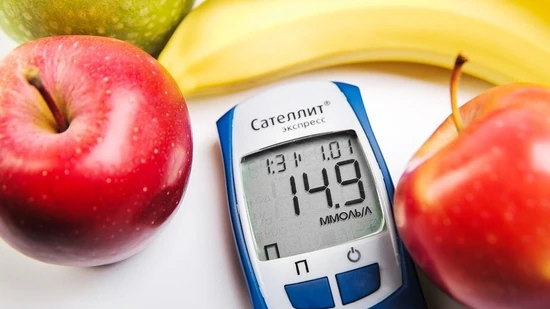
Diabetes diet: 6 Diets to Control your Blood Sugar Levels
Managing diabetes is much more than having a regular diet. It is important to eat a healthy meal. Here are 6 healthy diabetes foods that can help control diabetes.
Treatment of diabetes should be comprehensive, in which diet plays an important role. A healthy diet helps control blood sugar, control body weight and prevent complications associated with low blood sugar. If you have diabetes, your diet should be high in fiber, low in unhealthy fats, and rich in essential vitamins and minerals. You can better control your blood sugar by focusing on natural, low-fat foods.
Best Diet for Diabetes
People with diabetes can follow these 6 healthy ways to quickly control blood sugar:
1. Mediterranean diet
The Mediterranean diet is known for its heart-healthy benefits and is rich in essential vitamins, minerals and antioxidants. Being rich in fiber and antioxidants, it helps control blood sugar levels and supports heart health, making it ideal for diabetes management. It focuses on fruits, vegetables, whole grains like quinoa, barley, and whole wheat. Fats like olive oil, nuts, and seeds, and lean proteins like fish, chicken, and legumes. These foods can increase insulin sensitivity and reduce inflammation, making them a good choice for diabetes management.

2. Low Carbohydrate diet
Blood sugar in diabetics can be well controlled by reducing carbohydrate-rich foods such as bread, pasta and desserts. A study published in Frontiers in Nutrition found that a low-carb diet can control diabetes by keeping blood sugar levels stable. This diet includes the following foods:
- Non-starchy vegetables, such as broccoli, spinach, and peppers
- Protein-rich foods such as eggs, lean meat and tofu
- Eat healthy fats like avocados, nuts and olive oil
- Carbohydrates
A high-carbohydrate diet may increase blood sugar levels.
3. DASH diet
Unlike fad diets that are difficult to manage, the DASH (Dietary Approaches to Stop Hypertension) diet is easy to start and follow. Originally designed to prevent high blood pressure, this diet may also help people with diabetes. A study published by the American Diabetes Association found that this diet is beneficial, as people with diabetes have a higher risk of developing high blood pressure than people without diabetes. It focuses on fruits, vegetables, whole grains and lean proteins to help control blood sugar and promote heart health.
Remember to limit salt (sodium intake) and processed foods. Instead, add foods rich in potassium, calcium and magnesium to keep your heart healthy and reduce sugar in your diet.
4. Plant based diet
Plant-based diet refers to nutrients derived from plants while reducing or eliminating animal products. These foods include fruits and vegetables, whole grains (like brown rice, oats, and whole grains), and legumes and nuts (like beans, lentils, and nuts). These foods keep blood sugar levels steady and provide important nutrients like protein and healthy fats.
A study published in the Journal of Geriatric Cardiology found that a plant-based diet can improve insulin sensitivity and reduce the risk of type 2 diabetes. These foods may also promote heart health, aid weight loss, and improve bowel function.
5. Paleo Diet
The Paleo diet, also known as the Paleolithic diet, focuses on foods believed to have been available to our ancestors. Although it is not known exactly what our ancestors ate around the world, it is believed that whole foods comes from these diets. This includes:
- Lean meat and fish are rich in protein and beneficial omega-3 fatty acids.
- Fruits such as bananas, avocados and berries.
- Vegetables such as broccoli, carrots, cabbage, peppers and tomatoes are rich in vitamins, minerals and fibre.
- Nuts and seeds that provide good fats and protein.
Paleo diet helps control diabetes.
This diet excludes processed foods, sugar, and grains that can make blood sugar control difficult. According to research published in the Journal of Diabetes Science and Technology, the Paleo diet may reduce the risk of sudden high blood pressure, weight gain and high blood sugar compared to other diets.

6. Low glycemic index diet
Foods with a low glycemic index (GI) may affect blood sugar. A low-glycemic diet will replace high-GI foods to reduce the risk of blood sugar spikes, thus having a beneficial effect on diabetes management. Overall, these foods help lower blood sugar levels and reduce the risk of heart disease, type 2 diabetes, and weight loss. Low GI foods include green vegetables, legumes, fruits, kidney beans, raw carrots, lentils and whole grains, which may benefit diabetes management by reducing high blood sugar.
Foods that diabetic patients should avoid
Diabetics should avoid certain foods that may increase blood sugar and cause negative health effects. Here are 7 foods you should avoid if you have diabetes:
- Avoid carbonated drinks such as soda, sugary fruit juices and energy drinks, which are high in sugar and can cause your blood sugar to rise rapidly.
- Refined carbohydrates such as white bread, pasta and pastries do not contain much fiber and can quickly raise blood sugar.
- High sugar foods such as candy, cookies and other sugar rich foods with low nutritional value should be avoided.
- Fried foods, including french fries, fried chicken, and other fried foods, are high in unhealthy fats and calories. Avoid them too.
- Excessive alcohol consumption by people with diabetes can lead to unstable blood sugar and other health problems.
- Fatty foods such as milk, cheese and sugar should be avoided as they may cause insulin resistance.
